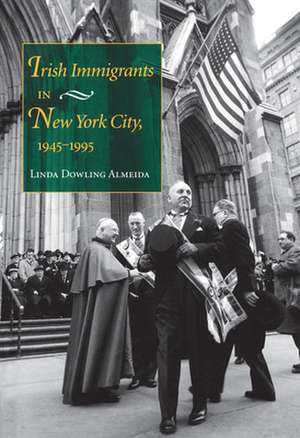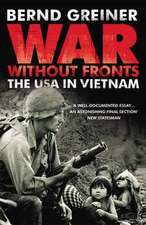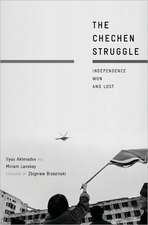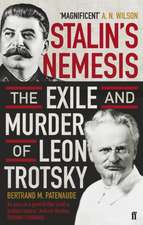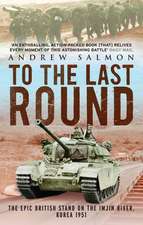Irish Immigrants in New York City, 1945–1995
Autor Linda Dowling Almeidaen Limba Engleză Hardback – 21 mar 2001
Of these "foreign-born" a relatively small percentage come from Ireland, but the Irish presence in the city (and in America) is ubiquitous. In the 1990 census forty-four million Americans identified themselves as having Irish ancestry. Of these, over half a million lived in New York City. From a President who has taken a personal role in the Northern Ireland peace process (and who claims Irish ancestry himself); to Frank McCourt and Alice McDermott, whose books top the bestseller lists and captured the Pulitzer Prize and National Book Award; to films like My Left Foot, The Crying Game and Brothers McMullen; to singers like Sinead O'Connor, and the bands U2 and Black 47; to the phenomenally successful Riverdance the Irish presence is everywhere.
Ironically, while thousands of books and articles have been written about the Irish in America, relatively little has been published about post-World-War-II immigrants. Hence this book.
It identifies two very distinct waves of Catholic Irish immigrants one in the 1950s and one in the 1980s. These were the largest post-War groups to come out of Ireland and they were the first to leave an independent Ireland. This book grew out of surveys conducted among the 1980s group the self-proclaimed "New Irish." It reveales a tense distance between the eighties immigrants and the established Irish-American and immigrant community. The differences have as much to do with the culture and society from which the New Irish came, as with the economic and social circumstances they found in New York. Even though both migrant communities originated in Ireland, their culture, politics and overall world perspective were quite different.
For more than three centuries Irish men and women have crossed the Atlantic to make a new home in North America. The five years from 1845 to 1850 are the most important period in Irish-American history. In that half decade almost one million Irish entered the United States in the wake of a potato famine that devastated Ireland and eliminated almost two million people from its population. Most of the Famine immigrants came through, if not settled in, New York City. New York City is a metropolis built by and inhabited by immigrants. In 1850 46 percent of the population was born abroad, in 1990 28.4 percent of the population was born abroad. The primary difference between the two periods is the origin of the foreign population. European immigrants dominated 19th century movement, while Hispanic and Asian natives outnumbered Europeans at the end of the 20th century.
However the immigration of the Irish to the United States and to New York City in particular has continued uninterrupted since before the American Revolution. The story of 19th century Irish migration to New York (dramatically retold in this book) not only profiles the mass movement of more than three million Irish across the Atlantic to a new life, new land and new culture, it profiles the development of the modern urban community. The story of the Irish is the story of the 19th century American industrial city. The Irish needed New York as a refuge at mid-century and New York (since before the Famine) needed the Irish and subsequent immigrants to build and maintain the complex urban metropolis that was New York City.
Using the two groups of post-World-War II immigrants as examples, Making their way in Twentieth Century America analyses the evolution of ethnic identity as well as the state of modern Irish immigration and the relationship between Ireland and the United States within the context of the long history of migration between the two countries and the changing dynamic of worldwide immigration to the United States.
Preț: 310.09 lei
Nou
Puncte Express: 465
Preț estimativ în valută:
59.35€ • 64.49$ • 49.89£
59.35€ • 64.49$ • 49.89£
Carte tipărită la comandă
Livrare economică 21 aprilie-05 mai
Preluare comenzi: 021 569.72.76
Specificații
ISBN-13: 9780253338433
ISBN-10: 0253338433
Pagini: 224
Dimensiuni: 164 x 241 x 22 mm
Greutate: 0.53 kg
Editura: MH – Indiana University Press
ISBN-10: 0253338433
Pagini: 224
Dimensiuni: 164 x 241 x 22 mm
Greutate: 0.53 kg
Editura: MH – Indiana University Press
Cuprins
Table of Contents:
Acknowledgments
Introduction
Chapter 1: The Background: When the Irish Ran New York
Chapter 2: The 1950s: "It Was a Great Time in America
Chapter 3: The 1970s: The Interim
Chapter 4: The 1980s: The New Irish
Chapter 5: The Catholic Church: What Parish Are You From?
Chapter 6: Who Are the Irish?
Conclusion
Epilogue
Bibliography
Acknowledgments
Introduction
Chapter 1: The Background: When the Irish Ran New York
Chapter 2: The 1950s: "It Was a Great Time in America
Chapter 3: The 1970s: The Interim
Chapter 4: The 1980s: The New Irish
Chapter 5: The Catholic Church: What Parish Are You From?
Chapter 6: Who Are the Irish?
Conclusion
Epilogue
Bibliography
Recenzii
"Almeida offers a dynamic portrait of Irish New York, one that keeps reinventing itself under new circumstances. Hasia Diner, New York University
"[Almeidas] close attention to changes in economics, culture, and politics on both sides of the Atlantic makes [this book] one of the more accomplished applications of the new social history to a contemporary American ethnic group. Roger Daniels, University of Cincinnati
"Almeida offers a dynamic portrait of Irish New York, one that keeps reinventing itself under new circumstances." Hasia Diner, New York University "[Almeida's] close attention to changes in economics, culture, and politics on both sides of the Atlantic makes [this book] one of the more accomplished applications of the 'new social history' to a contemporary American ethnic group." Roger Daniels, University of Cincinnati
"[Almeidas] close attention to changes in economics, culture, and politics on both sides of the Atlantic makes [this book] one of the more accomplished applications of the new social history to a contemporary American ethnic group. Roger Daniels, University of Cincinnati
"Almeida offers a dynamic portrait of Irish New York, one that keeps reinventing itself under new circumstances." Hasia Diner, New York University "[Almeida's] close attention to changes in economics, culture, and politics on both sides of the Atlantic makes [this book] one of the more accomplished applications of the 'new social history' to a contemporary American ethnic group." Roger Daniels, University of Cincinnati
Notă biografică
Linda Dowling Almeida is an Adjunct Professor of History at New York University. She received her BA and MA degrees from Boston College and her Ph.D. from NYU. She has published articles on the ""New Irish"" in America. She is a long-time member of the New York Irish History Roundtable and edited Volume 8 of the journal NEW YORK IRISH HISTORY.
Descriere
The story of one of the most visible groups of immigrants in the major city of immigrants in the last half of the twentieth century.
